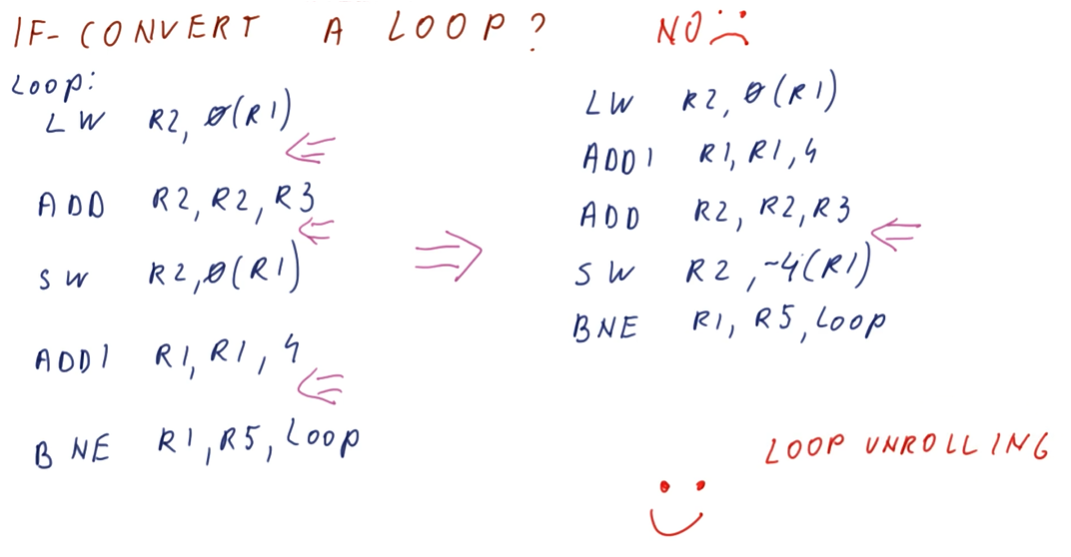Instruction Scheduling
The idea behind instruction scheduling is to identify instructions that will take a couple of cycles to complete and moving instructions that take less cycles to complete to "stall" locations in the program. This way, we can execute non-dependent instructions while waiting for something else to happen, like a read from memory.
The excerpts below provide a high-level representation of a how a compiler identifies stalls in the program code for long operations and rearranges instructions to leverage as much concurrency as possible.
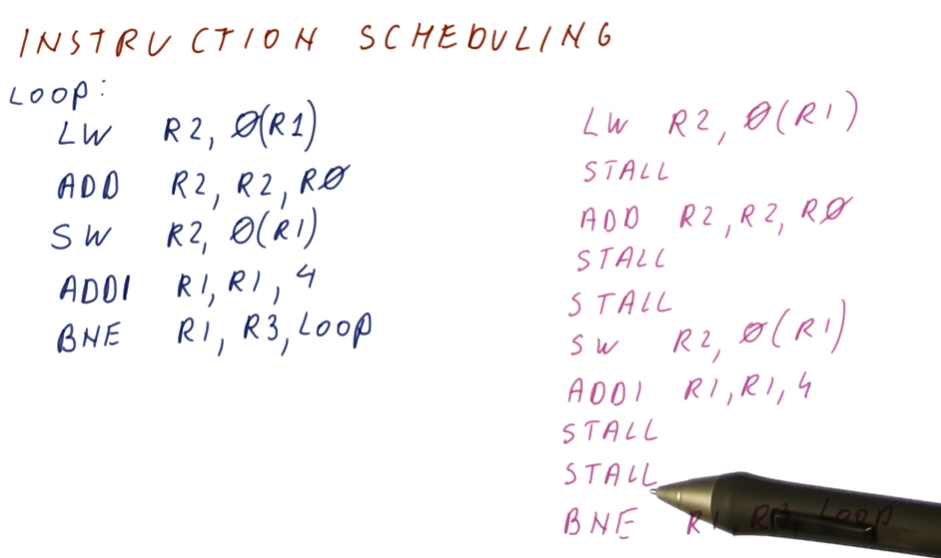
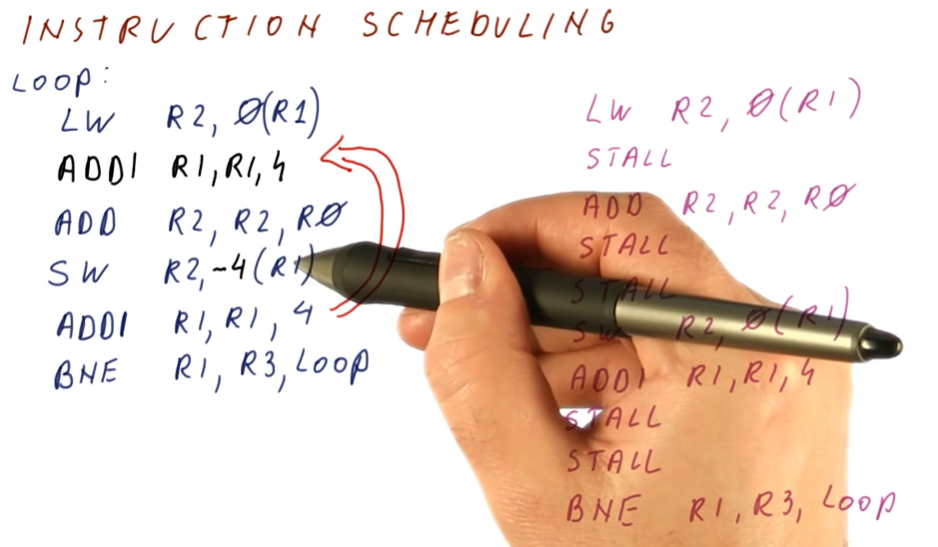
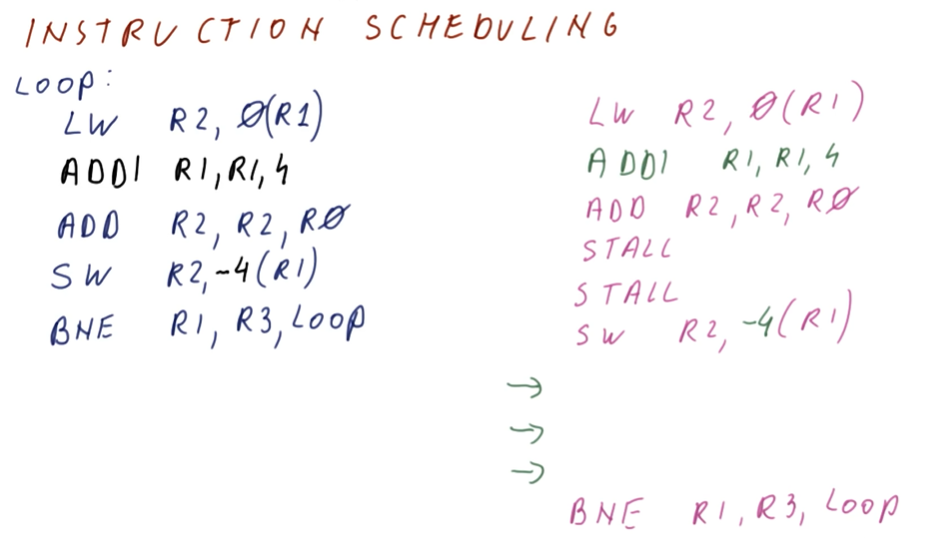
Instruction Scheduling Quiz
The quiz below showcases how we can use instruction scheduling to decrease the
number of cycles it takes to complete a series of instructions. Without
instruction scheduling, it takes us 8 cycles to complete the series of
instructions. Once we identify the stalls, we see that we can execute the
second LOAD operation right after the first one if we rename the target
register from R1 to R10.
With instruction scheduling, we are able to execute the example instructions in 6 cycles.
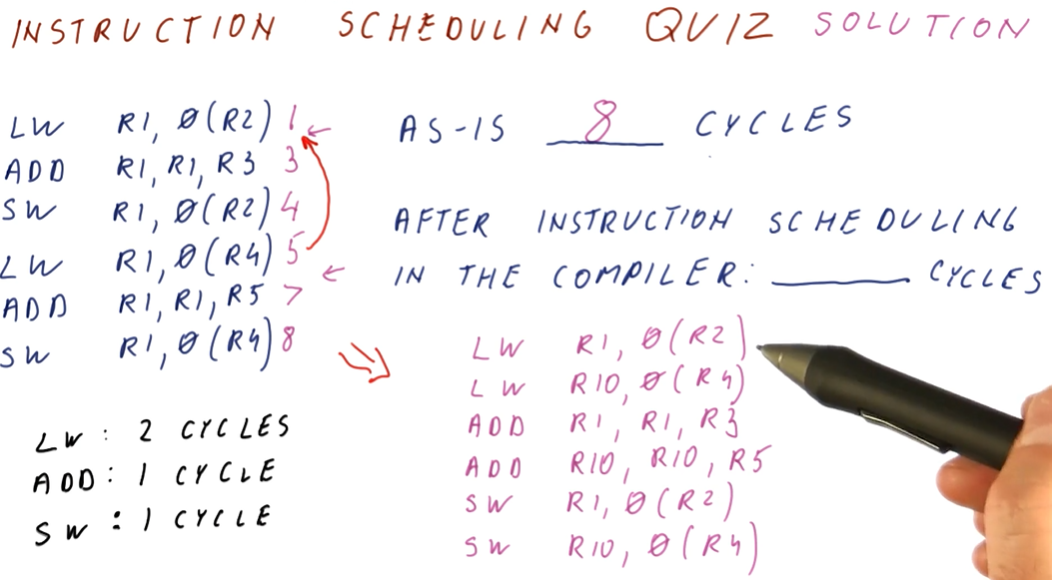
Instruction scheduling and If conversion
We can easily apply instruction scheduling to the blocks of code in different branches, but how do use instruction scheduling across blocks of code in different branches? If we conduct instruction scheduling without predication, we would move some instructions in to different branches, however, if that branch does not execute, the re-scheduled instruction does not get executed, changing the behavior of the program.
To solve this, we can combine the branches using predication. We prepend the code of if-else statements with predicates, combine the branches into one block, and execute all instructions. Then we apply instruction scheduling to increase our efficiency.
Below is a high level representation of this concept.
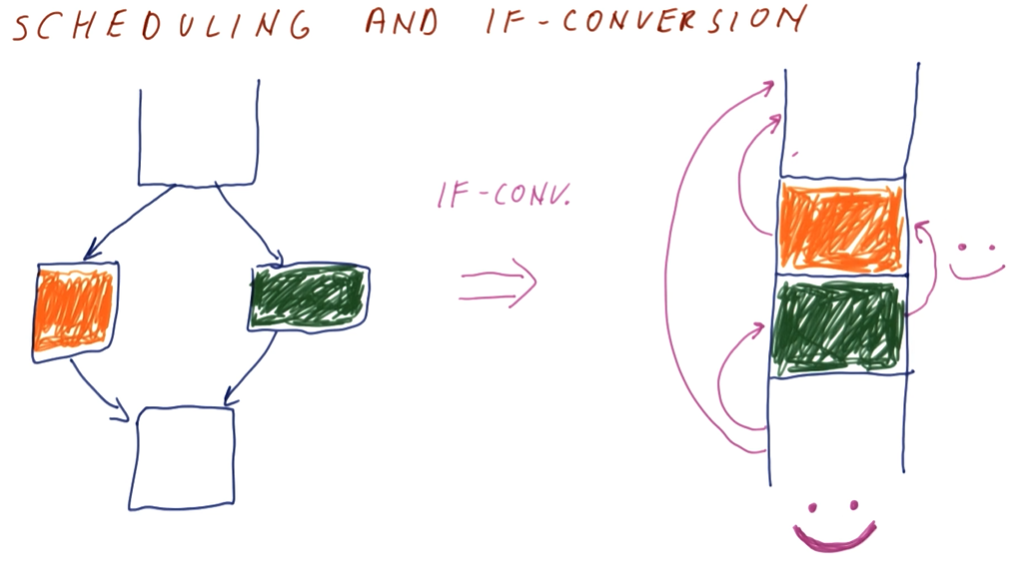
Loops and If conversion
So, can we conduct instruction scheduling on loops, using If conversion and predication to enable the movement of instructions in the program? Yes, instruction scheduling can be done on the block of instructions that comprises a loop, however, in order to remove the branch instruction to conduct If conversion, we would have to install predicates for each loop of the branch. Is this feasible? Absolutely not - what if we had a branch that looped a million times, would we install a million predicates?
Below is an excerpt from the lecture explaining this issue at a higher level.
